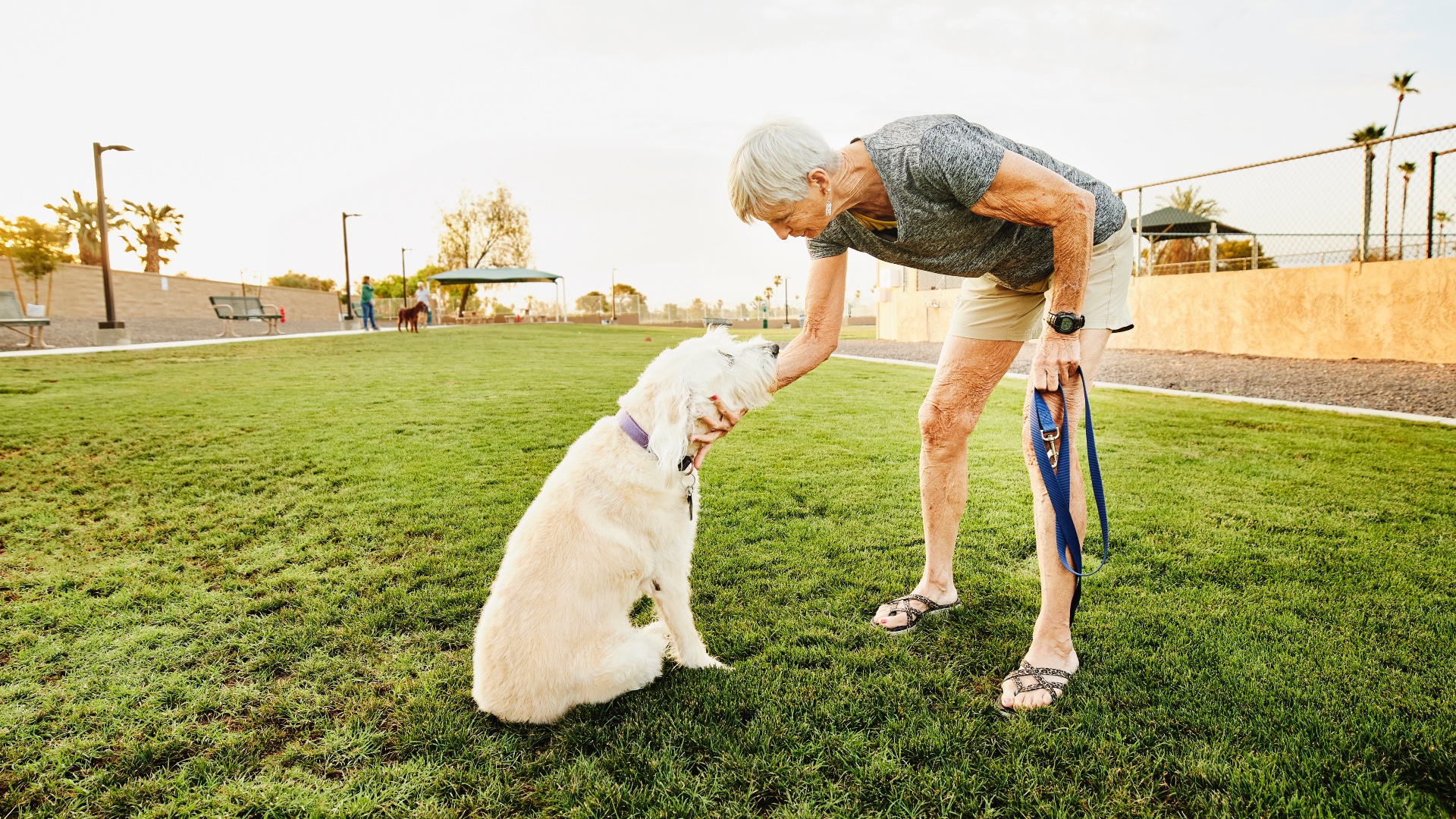
When it comes to training, getting a dog to come when called is right up there on the difficulty scale for most pet parents. And it's not hard to see why with so many sights, smells, and sounds in the natural world that our dogs are eager to investigate and explore.
There could be several possible reasons why your dog's recall isn't reliable, including letting your dog interact with distractions, but just like when it comes to learning how to stop a dog from jumping up, there is a way to build a reliable recall and expert trainer Julianna DeWillems has the secret.
"Reps on reps on reps. That’s what you need in order to build a reliable recall," she explains. "Hundreds of reps of your recall cue resulting in something GREAT for your dog!" DeWillems breaks down exactly how to do this in a video shared to Instagram. You can view the clip below or keep reading for a summary of the main points.
DeWillems says that one of the best things you can do if you want your dog to come when called is to release them back to what they were doing after you call them.
"So often we pair coming when called with interrupting and ending whatever fun thing our dog was doing at the time, and this can accidentally punish the behavior of coming when called, decreasing the dog's responsiveness over time."
This is why DeWillems stresses the importance of practising getting your dog to come when called as it teaches your dog that most of the time, coming to you is a win-win. They get a tasty dog treat AND they get to go back to what they were doing.
"Every time you reward your dog for coming when called you are depositing into the bank account for that behavior, increasing the chances they choose that behavior in the future," she explains.
"This is why practice is so important, instead of waiting until you *need* a response in the moment. If you only ever call your dog in situations when you need them to come, there is a good chance your bank account for that behavior is low - not enough positive reps!"
If the majority of the time your dog gets to return to what they were doing, then on the occasions where you do need them to come because it's time to leave the park or you're trying to prevent them from rolling in something they shouldn't, it's not going to seem quite so punishing to them because there is still a rich reinforcement history for coming when called.
Looking for more great training tips? Then be sure to check out our guides to how to calm a reactive dog and how to stop a dog pulling on a leash.







